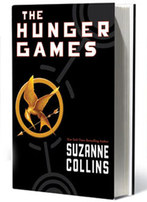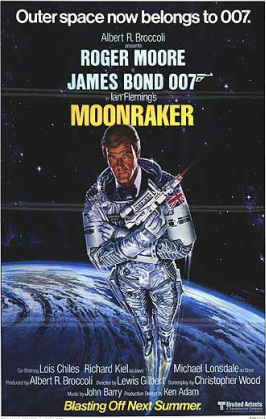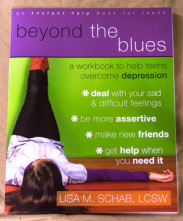Today I'm taking a step sideways. Rather than sharing my journey of goal-setting, I'm going to address "loglines."
Why? Because a logline is a great tool for writers trying to tell people what their story is about.
Tomorrow I'll be back on task with a blog report on my goals.
Now for LOGLINES <rubbing hands together>
Why? Because a logline is a great tool for writers trying to tell people what their story is about.
Tomorrow I'll be back on task with a blog report on my goals.
Now for LOGLINES <rubbing hands together>
A logline is a one-line synopsis that typically answers the question:
"What is your story about?"
"What is your story about?"
A “standard” logline for fiction* may include these 3 elements:
1) Character: Who is your story about? Give a description, not a name. A common technique is to provide a “dominant impression” which is an adjective plus a noun (like timid writer, neurotic housewife, murdering dentist, etc.)
2) Goal: What does your character want? The character's overarching goal in the book.
3) Conflict: What's keeping them from getting it? Can be internal and/or external.
1) Character: Who is your story about? Give a description, not a name. A common technique is to provide a “dominant impression” which is an adjective plus a noun (like timid writer, neurotic housewife, murdering dentist, etc.)
2) Goal: What does your character want? The character's overarching goal in the book.
3) Conflict: What's keeping them from getting it? Can be internal and/or external.
It’s a good idea to add a fourth element – what I call the “Plus” – to provide a little something extra to “hook” the reader.
* For standard nonfiction, scroll to the bottom for information pertaining to nonfiction books. For creative nonfiction and memoir, depending on your project you may find that the fiction techniques work better for you than the nonfiction method I describe. Go with what works best for your project.
Arriving at the logline
Loglines are invariably too detailed or too general. It takes work to hone it to the perfect short one-liner that hooks the reader and conveys information about your story without sounding like a thesaurus.
I’ll try to illustrate what I mean using the Hunger Games.

LOGLINE EXAMPLE:
A girl on a reality TV show has to make difficult ethical choices in order to win.
If I hadn't told you, would you have known this logline is for the Hunger Games? Maybe, but it's awfully general, isn't it? It could take place in any time period, in any place. It reveals nothing about the world, and almost nothing about the character. There’s nothing intriguing or unique to hook the reader.
Let’s try to improve on that example.
IMPROVEMENT #1:
In the future, amidst the ruins of North America lies the nation of Panem where a 16-year-old girl who is a loner and sole-supporter of her family, Katniss Everdeen, takes her younger, weaker sister Prim’s place in the nationally televised Hunger Games where she’s a longshot to survive the fight to the death against other teenagers from every District—a fight to the death on live TV.
A girl on a reality TV show has to make difficult ethical choices in order to win.
If I hadn't told you, would you have known this logline is for the Hunger Games? Maybe, but it's awfully general, isn't it? It could take place in any time period, in any place. It reveals nothing about the world, and almost nothing about the character. There’s nothing intriguing or unique to hook the reader.
Let’s try to improve on that example.
IMPROVEMENT #1:
In the future, amidst the ruins of North America lies the nation of Panem where a 16-year-old girl who is a loner and sole-supporter of her family, Katniss Everdeen, takes her younger, weaker sister Prim’s place in the nationally televised Hunger Games where she’s a longshot to survive the fight to the death against other teenagers from every District—a fight to the death on live TV.
An improvement? Well, it’s certainly not too general any more! But I think this version is too wordy with way too many clauses and details. It does convey more of the world and the character, and it has a hook, but the sentence is too dense to make it memorable or even understandable.
IMPROVEMENT #2:
A desperate 16-year-old fights to be the sole survivor of the Hunger Games, but at what cost to her humanity?
I think we’re getting somewhere now. This has the three elements I list above. Here’s how it breaks down:
A desperate 16-year-old (CHARACTER) fights to be the sole survivor (EXTERNAL CONFLICT, GOAL) of The Hunger Games, but at what cost to her humanity? (INTERNAL CONFLICT)
So this version is better, but I don’t think it’s as good as we can make it yet. Let’s try adding the “plus” – that something extra to hook the reader.
A desperate 16-year-old fights to be the sole survivor of the Hunger Games, but at what cost to her humanity?
I think we’re getting somewhere now. This has the three elements I list above. Here’s how it breaks down:
A desperate 16-year-old (CHARACTER) fights to be the sole survivor (EXTERNAL CONFLICT, GOAL) of The Hunger Games, but at what cost to her humanity? (INTERNAL CONFLICT)
So this version is better, but I don’t think it’s as good as we can make it yet. Let’s try adding the “plus” – that something extra to hook the reader.
IMPROVEMENT #3:
In what used to be North America, a desperate 16-year-old girl battles to be the sole survivor of the nationally televised "Hunger Games" where teens fight to the death, but at what cost to her humanity?
Here's the breakdown:
In what used to be North America (PLUS), a desperate 16-year-old (CHARACTER) battles to be the sole survivor (EXTERNAL CONFLICT, GOAL) of the nationally televised "Hunger Games" where teens fight to the death (PLUS), but at what cost to her humanity? (INTERNAL CONFLICT)
In what used to be North America, a desperate 16-year-old girl battles to be the sole survivor of the nationally televised "Hunger Games" where teens fight to the death, but at what cost to her humanity?
Here's the breakdown:
In what used to be North America (PLUS), a desperate 16-year-old (CHARACTER) battles to be the sole survivor (EXTERNAL CONFLICT, GOAL) of the nationally televised "Hunger Games" where teens fight to the death (PLUS), but at what cost to her humanity? (INTERNAL CONFLICT)
Did we nail it? Would that logline get me a “send it” if I pitched it to an agent on an elevator at a writer’s conference? Maybe, assuming The Hunger Games hadn’t already sold!
Ultimately the success of a logline comes down to a matter of personal opinion, market considerations, and a host of other factors we (the writers) don’t have control over. But we do have control over creating a clear, straightforward, succinct sentence that conveys the essence of the story. And by adding a little “plus,” hopefully we can hook the reader.
Ultimately the success of a logline comes down to a matter of personal opinion, market considerations, and a host of other factors we (the writers) don’t have control over. But we do have control over creating a clear, straightforward, succinct sentence that conveys the essence of the story. And by adding a little “plus,” hopefully we can hook the reader.
This is not the ONLY way, by any stretch of the imagination, to create a good logline.
The “Hollywood Pitch” has become a common way to address the logline. This type of logline is a catchy “tagline,” like you might see on a movie poster. It gives a tease, the flavor of a story, maybe the big-picture concept, but typically does not address all of the elements I list above.
I have some examples to help illustrate this approach in case you want to try it.
But first I have some cautionary notes:
The “Hollywood Pitch” has become a common way to address the logline. This type of logline is a catchy “tagline,” like you might see on a movie poster. It gives a tease, the flavor of a story, maybe the big-picture concept, but typically does not address all of the elements I list above.
I have some examples to help illustrate this approach in case you want to try it.
But first I have some cautionary notes:
1. This approach does not work for every story.
2. If you use a Hollywood “tagline” you must nail it, meaning
a) it must be good/catchy, and
b) it must actually be demonstrative of your story
3. You should be able to follow up this tagline with a SECOND line of more substance, such as the traditional 4-element logline described above.
2. If you use a Hollywood “tagline” you must nail it, meaning
a) it must be good/catchy, and
b) it must actually be demonstrative of your story
3. You should be able to follow up this tagline with a SECOND line of more substance, such as the traditional 4-element logline described above.
As such, if you decide to experiment with a Hollywood-type logline, I recommend you ALSO compose the more “standard” logline, as I believe both will serve you.
EXAMPLES OF "HOLLYWOOD" LOGLINES:

1. Tried and True (CLICHÉ)
a. Beauty and the Beast
b. Marriage of Convenience
c. Fish out of Water
2. Tried and True with a Twist (CLICHÉ "PLUS")
a. Beauty and the Beast BUT the Beauty is an 80 year old man
b. Marriage of Convenience BUT it's between two aliens
3. Equate and Differentiate (AN EXISTING WORK "PLUS") where you equate your project with a book/movie with a proven track record, then differentiate it from that story to show your unique take
a. It's like Lord of the Rings with giant alien spider creatures
b. It's a Native American Wizard of Oz
4. X + Y = mine:
a. The Flintstones in Jurassic Park
b. Sleeping with the Enemy in futuristic Athens
5. General “High Concept" (like a tagline for a movie poster) that does not follow any certain formula:
A PIECE OF HEAVEN: A man sues God.
STAR WARS: A ragtag band of rebels is the only hope of saving the universe.
AGENT CODY BANKS: Save the world, get the girl, pass math.
THE GOOD, THE BAD AND THE UGLY: For three men the Civil War wasn't hell, it was practice.
HOOK: What if Peter Pan grew up?
THE FUGITIVE: A murdered wife, a one-armed man, an obsessed detective. The chase begins.
MOONRAKER: Outerspace now belongs to 007.
THE SPY WHO SHAGGED ME: Double-O Behave
So if it sounds like Hollywood-style might work for your story, give it a shot. Then try out your favorites on friends to gauge effectiveness. Be sure to assess your own personal comfort level in delivering a Hollywood tagline (on paper or verbally, whatever applies to you) because if you don't "own it," it will be hard to sell anyone on it.

For those of you writing NONFICTION, as promised I also have some ideas for you. Rather than a “logline,” I suggest working on your title, to include a subtitle. The title should be catchy; the subtitle should tell what it's about.
Here are some examples:
PRICELESS: How I Went Undercover to Rescue the World's Stolen Treasures
THE ENDURANCE: Shakelton's Legendary Antarctic Expedition
BEYOND THE BLUES: A Workbook to Help Teens Overcome Depression
Here are some examples:
PRICELESS: How I Went Undercover to Rescue the World's Stolen Treasures
THE ENDURANCE: Shakelton's Legendary Antarctic Expedition
BEYOND THE BLUES: A Workbook to Help Teens Overcome Depression
IN CONCLUSION
I hope this not-so-little aside helps you with your own loglines.
See you tomorrow for an update on my journey to achieve my wildest writing dreams :-)
I hope this not-so-little aside helps you with your own loglines.
See you tomorrow for an update on my journey to achieve my wildest writing dreams :-)
 RSS Feed
RSS Feed